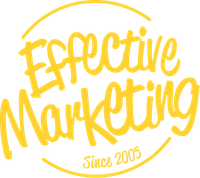What is customer acquisition cost?
What is customer acquisition cost?
Hello there my name is Martin Henley, this is the what the series and in this episode number 12 we are answering the questions what is customer acquisition cost and is this the metric that will blow the minds of your future clients?
In addressing the question what is customer acquisition cost there are six things that we will be sharing with you. We are going to give you a definition of customer acquisition cost; we’re going to think about why customer acquisition cost is so important; how you calculate customer acquisition cost; what your customer acquisition cost should look like; when to use customer acquisition cost and what happens to your customer acquisition cost over time.
Let’s go Alex.
Did we find a definition of customer acquisition cost?
If we are going to understand customer acquisition cost we are going to need a definition and we found one at insideintercom.com and what they tell us is that customer acquisition cost is “the best approximation of total cost of acquiring a new customer.”
You will remember from video number two what is marketing? that if you are proactively marketing you are effectively in the business of buying customers with your time, your energy and your money so the customer acquisition cost according to insideintercom.com is the approximation of what that cost is. I love this definition apart from the approximation part, why are we approximating? let’s do the work and understand exactly what your customer acquisition cost is.
Why is customer acquisition cost important?
Now you understand what customer acquisition cost is you might be asking yourselves why is this so important?
There are essentially four reasons why customer acquisition cost is so important.
The first is about your bottom line; if you are spending money on acquiring customers, which you are if you are proactively marketing in your business, then that will clearly have an effect on your profitability. If you are spending too much to acquire customers then your profitability will be lower than it needs to be.
The second reason is what forentrepreneur.com call a startup killer. What they tell us is that even if you have a great product, in a great market and your targeting is right – if you have underestimated your cost of customer acquisition your profitability won’t be where you expect it to be – you could go out of business.
The third reason is about understandability. This is video 12 in this series and what we have communicated so far is that whilst people don’t really understand marketing, everybody can understand customer acquisition cost. Explain this to your bosses, your clients, even if they don’t understand what marketing is or why marketing is so valuable, they can definitely understand that you are in the business of buying customers for them and if you can buy customers more cost-effectively that will improve their profitability. Everybody can understand customer acquisition cost.
The fourth reason that you want to be thinking about cost of customer acquisition is because this this data is available to you. You might not get the profitability from your clients, you might not get the overall turnover but you should know exactly how much you’re spending on acquiring these customers and how many customers are acquired and with that information you can do this calculation all by yourself.
How do you calculate customer acquisition cost?
Hopefully you’re hearing me and you’re thinking yet this sounds very important, I would love to understand what my cost of customer acquisition is – how do I calculate cost of customer acquisition. It sounds complicated but in truth you could do this on the back of a cigarette packet. All you need to do is take all of your sales and marketing costs; all of the marketing salaries; all of the sales salaries; all of the money you spend on advertising; on cars; on computers; on subscriptions – the email subscriptions, social media subscriptions; all of the money that you spend on creative; on developing websites and ad campaigns; all of your time; all of your energy; all of the money you spend on renting space for these people to sit in; and all of the money that you spend on agencies and you divide that by the total number of customers that you have acquired in that period.
So whilst Inside Intercom are telling us that this customer acquisition cost is an approximation, it might be an approximation in the first instance, as you go forward you want to get more and more accurate with these figures. In the first instance you could ask a prospective customer or boss in a second how much are you spending on sales? how much you spending on marketing? how many customers are you generating in a year? OK, so your cost of customer acquisition is likely to be X.
However, because you are sharp you’re now telling me but this isn’t perfect because some of this money that I spend on sales and marketing marketing goes on retaining customers so it’s not about new customer acquisition. That’s absolutely fine, that is exactly what you should be doing but in the first instance this calculation will give you the best approximation of what your cost of customer acquisition is.
What should your cost of customer acquisition look like?
Now you have calculated your cost of customer acquisition you are probably a little bit shocked and you probably need to have a sit-down. You might be thinking thinking my cost of customer acquisition is X but is that a good cost of customer acquisition or is that a bad cost of customer acquisition?
We were thinking the same thing so we went out and we looked for what a cost of customer acquisition should look like. We found this example at Klipfolio who tell us that an ideal LTV that’s lifetime value versus cost of customer acquisition should be three to one. That is the value of a customer should be three times more than the cost of acquiring that customer. What they’re saying is that if you spend one dollar on acquiring a customer you should get three dollars back. Now you might need to have a sit-down because what essentially Klipfolio are telling us is that the ideal the ideal cost of customer acquisition is a third of your turnover, 33%. So if you are selling at a margin of 20% and it’s costing you 33% of your turnover to acquire a customer you are effectively losing 13% every time you sell something. The more effective your sales are the more effective your marketing are the quicker you will go out of business!
This is why forentrepreneur.com describe customer acquisition cost as a start-up killer and this is why I’m telling you that the cost of acquiring customers will affect your bottom line. If you aren’t calculating your cost of customer acquisition, and it’s 33%, there is a very good chance that you are going out of business.
Personally I think this is high so we looked into it further and went to CMOSurvey.org who do a survey every year to see how much people are spending on marketing. They found that the average is 11.1% that businesses spend, of their turnover, on marketing. Interestingly Gartner did a similar survey of the top 500 and they found that the top 500 are spending 13% of their total turnover on marketing which is 20% more than the average.
What’s interesting about these survey results is that this is only the marketing cost, this doesn’t include the entirety of the marketing and the sales costs. I can tell you for sure that your sales budget could easily be twice your marketing budget which gets you to this 33%.
So if you aren’t calculating your cost of customer acquisition you need to start doing that right now because it could be that you are selling yourself out of business.
When should you use customer acquisition cost?
Which brings us then to point number five and point number five is the question when should you use customer acquisition cost. I like to use this is if I am pitching a new client, heaven forbid I have to sit in an interview ever again for a job, but if I’m pitching for a new client I will ask them what is your cost of customer acquisition and they will go blank. They won’t know what I’m talking about but in one minute I can explain to them if you engage me I will be in the business of buying customers for you and the more efficiently, the more cost-effectively, we can buy those customers then the better your marketing will be and the more profitable your business will be.
Like I say, you can do this calculation on the back of a cigarette packet so if you ask somebody in an interview or a pitch – what do you spend on sales? what do you spend on marketing? how many new customers are you generating? you can give them a great approximation right off the bat that most likely their cost of customer acquisition is 33% of what they’re doing. 33% of all their energy is going into acquiring new customers. If when I pitch them and say tell them that I will be here to make their customer acquisition more a cost-effective, and their business more profitable they understand and that typically will get me the job.
So if I were you I would use cost of customer acquisition in interviews and in pitches to get new clients. Once you’re with the client what you need to do is you need to track this weekly and monthly and annually now you will know that the actual costs of a business are only really allocated at the end of the year so you will only have the actual number once a year but every week you can be record reporting to your clients to your bosses and you can say our cost of customer acquisition is here this is the metric that you use to win clients and jobs and keep clients and jobs
What happens to customer acquisition cost over time?
Which brings us then to point number six which is the question; what happens to customer acquisition costs over time? Well the good news for you is once you’ve won this job or this client what will happen to the cost of customer acquisition is immediately it will go down because there is always waste in the existing sales and marketing. There is money that is being wasted on salaries, on advertising, on cars and computers, on subscriptions, there is undoubtably waste. Once you start looking at this and start driving efficiency, immediately your cost of customer acquisition will go down.
Over the long term it’s reported that your cost of customer acquisition is likely to go up. This kind of makes sense if you’re running PPC campaigns then maybe your cost per click will go up over time, maybe once you exhaust some of the market other customers are going to be harder to come by and the cost of customer acquisition will go up. However, as long as you can demonstrate, whatever happens, that you are in the business of acquiring customers profitably then you will keep those jobs and you will keep those clients.
Did we define customer acquisition cost effectively?
If you are still with us well done. You now know exactly what customer acquisition cost is; you know why customer acquisition cost is so important; you know how to calculate your cost of customer acquisition; you know what a good cost of customer acquisition looks like; you know when to use cost of customer acquisition and you know what is likely to happen to your cost of customer acquisition over time.
What should you do if you have found this interesting or useful?
If you have found this interesting or useful be sure to check out video number thirteen what is customer lifetime value?
If you’ve enjoyed this video please take a second to like, share, subscribe, maybe comment, maybe there’s a piece of marketing jargon that you would like to see defined in this fashion. If you found it really interesting or useful then why not head across to the Effective Marketing Company blog and subscribe there and you will get this marketing jargon, bullshit busting goodness in your inbox every single day.
We are done here Alex.

Martin Henley
Martin’s original content is based on his very current experience of running effective marketing initiatives for his customers and the feedback from Effective Marketing’s successful and popular marketing workshops.
WHAT DO YOU THINK?
SUBSCRIBE
RECENT POSTS

Are we nearly there yet? The insanity of business goal setting – Thinking Out Loud 001
Click through to the good bits. 00:00 Introduction. 02:50 Objectives. 07:04 Smart objectives. 08:16 5 Fundamentals of Leadership - Simon Sinek. 14:32 When David Goggins was in the military. 16:46 Formula for success - Andy Gwynn. 20:54 Marketing can save the world -...

The power of vulnerability in sales – Effective Marketing Clips 21
The Power of Vulnerability Sales. Martin Henley: Before we started recording, you were talking about the power of vulnerability, which I think is counterintuitive to business people. What is that? What does that mean? Niraj Kapur: The power of vulnerability means...

Reacting to How Apple and Nike have branded your brain – Reaction Time 025
Click through to the good bits. 00:00 Introduction. 11:00 The true power of brands. 13:32 Identity. 14:20 Brand loyalty. 30:42 Idea in marketing. 31:14 Apple vs Samsung. 36:46 Be aware of the influence that brands hold. 37:02 Brands have stepped in as pillars of our...

TikTok enforcers, News loses rankings, Insta u-turn on TikTok, Facebook back – Marketing News 025
Click through to the good bits. 00:00 Introduction. 01:54 Catch-ups. 06:26 What's on marketing news? 09:29 TikTok supporting creators with an updated account enforcement system. 19:24 Google has downgraded the importance of news websites. 27:52 Instagram u-turns...
OTHER PAGES
GET IN TOUCH



0 Comments